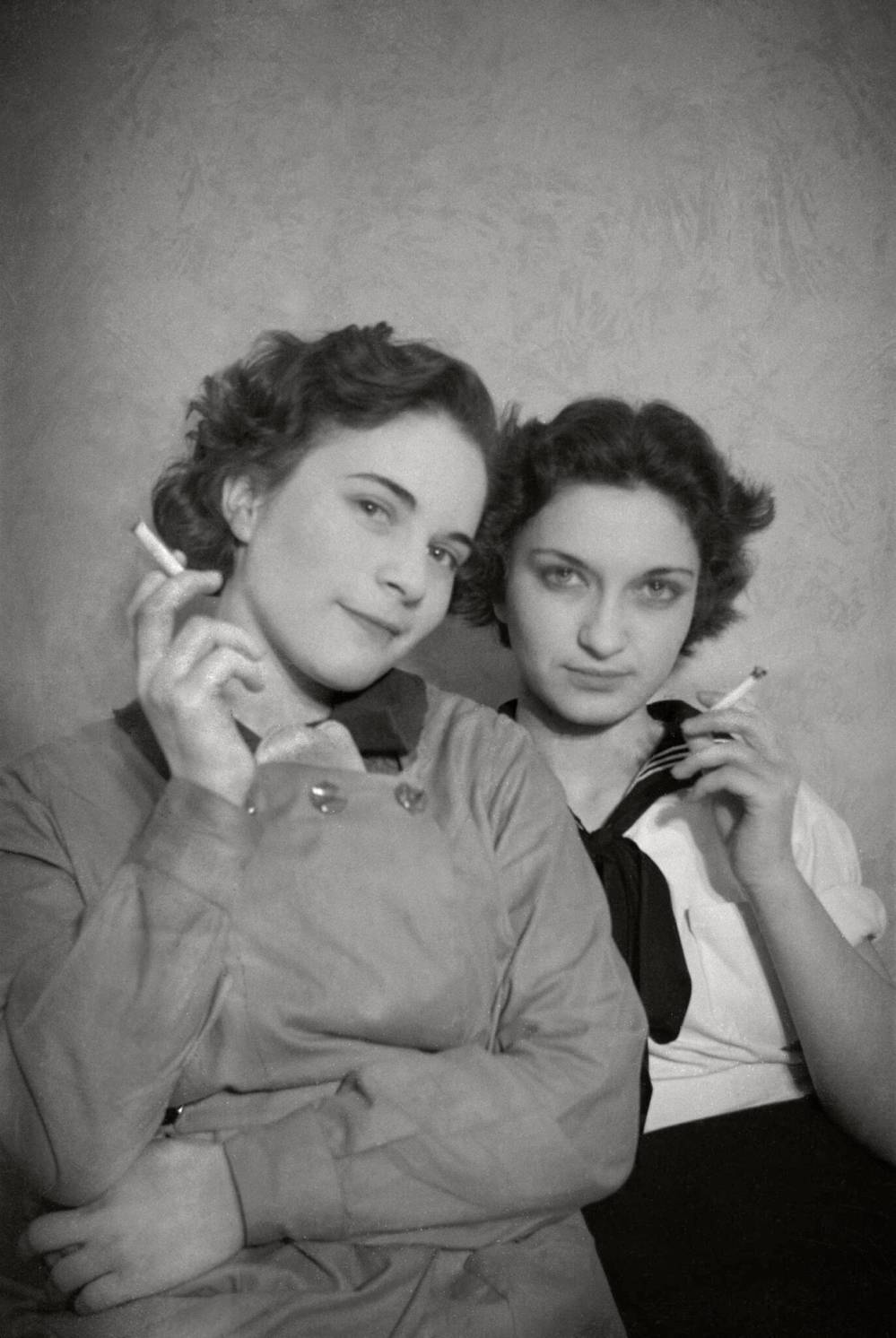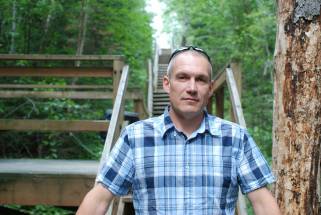Gritty and glamorous Morden photographer’s dramatic, decades-old negatives developed and displayed at Manitoba Museum
Read this article for free:
or
Already have an account? Log in here »
To continue reading, please subscribe:
Monthly Digital Subscription
$0 for the first 4 weeks*
- Enjoy unlimited reading on winnipegfreepress.com
- Read the E-Edition, our digital replica newspaper
- Access News Break, our award-winning app
- Play interactive puzzles
*No charge for 4 weeks then price increases to the regular rate of $19.00 plus GST every four weeks. Offer available to new and qualified returning subscribers only. Cancel any time.
Monthly Digital Subscription
$4.75/week*
- Enjoy unlimited reading on winnipegfreepress.com
- Read the E-Edition, our digital replica newspaper
- Access News Break, our award-winning app
- Play interactive puzzles
*Billed as $19 plus GST every four weeks. Cancel any time.
To continue reading, please subscribe:
Add Free Press access to your Brandon Sun subscription for only an additional
$1 for the first 4 weeks*
*Your next subscription payment will increase by $1.00 and you will be charged $16.99 plus GST for four weeks. After four weeks, your payment will increase to $23.99 plus GST every four weeks.
Read unlimited articles for free today:
or
Already have an account? Log in here »
Hey there, time traveller!
This article was published 20/06/2022 (1265 days ago), so information in it may no longer be current.
Sometime in the mid 1970s, Celia Rabinovitch’s father, Milton, presented her with a wooden box.
Event Preview
The Lost Expressionist – Nick Yudell, a Photographer Discovered
● Manitoba Museum, Discovery Room, 190 Rupert Ave.
● Thursday through Sunday, 11 a.m. – 5 p.m. through Aug. 1
“These were Nick’s,” he said at the time. “Maybe you can do something with them.”

The box, which had sat on a shelf in the Rabinovitch home for decades, contained more than 300 film negatives dating back to the 1920s and spanning through Manitoba’s Dirty Thirties. It was the life’s work of Milton’s cousin, Isador (Nick) Yudell.
At the time, Rabinovitch didn’t think much of her father’s remark — it was a comment made in passing, not an explicit request. But in 2007, she began to scan and digitize the photos. What she discovered was a historical trove, detailing people and places otherwise lost to the passage of time.
Now, after 15 years of careful restoration, Rabinovitch has retraced the history of Yudell’s life’s work, curating the photographs into a new exhibit at the Manitoba Museum titled The Lost Expressionist – Nick Yudell, a Photographer Discovered.
Born in Winnipeg in 1916, Yudell was a first-generation Canadian with Jewish and Ukrainian (then a part of Russia) roots.
At the age of 12, his family gifted him a camera. Using black-and-white film, homemade lighting set-ups and an artistic eye, Yudell spent the next decade documenting his life, relationships and home in Morden.
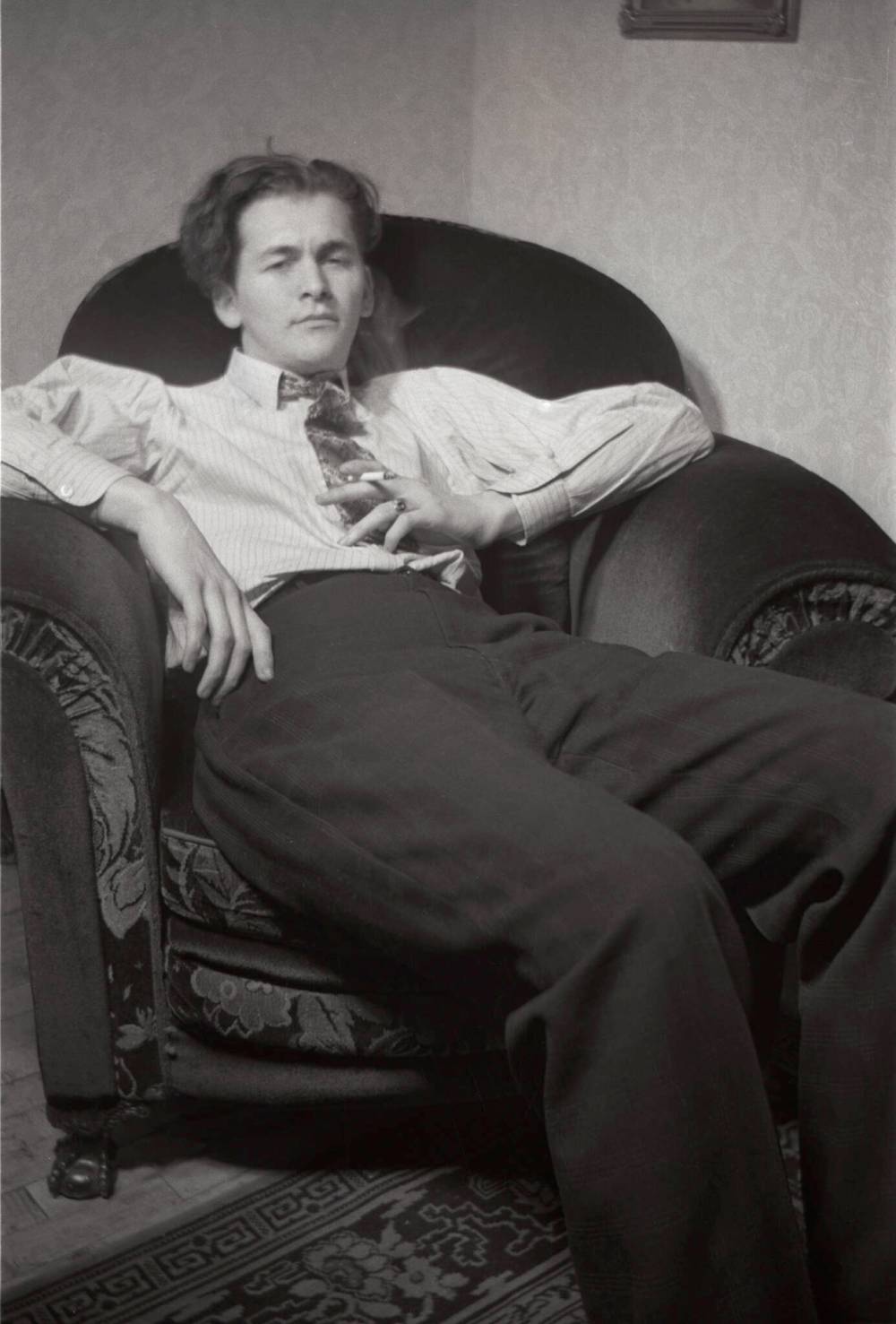
The resulting photos are gritty, glamourous and compelling. They demonstrate a style common to European high society but completely alien to rural Manitoba, said Rabinovitch, who holds a masters degree in fine arts and formerly directed the School of Art at the University of Manitoba.
“It became immediately apparent that he was an artist in his own right,” Rabinovitch said, detailing her first impression of the photographs. “At the begining of the process… I thought well, there’ll be some good archival photos… then, as I started to scan… I thought, ‘this guy has his own vision. He’s an artist and he has a story to tell.’”
Yudell — who spent his days working at Rabinovitch Bros., a family-run dry-goods and clothing store then located on Morden’s Stephen St. — took inspiration from outdated photography magazines he salvaged from the nearby pharmacy and tried to replicate the composition and techniques demonstrated within.
His friends and family became his muses. Yudell would dress them in elegant clothes, posing them like movie stars and taking shots from extreme angles to create abstract perspectives. At times he would experiment with long exposures, creating ghostly apparitions or duplicating his subjects.
Although he was a self-taught amateur, Yudell’s work displays a sophistication and playfulness that was ahead of its time, Rabinovitch said.
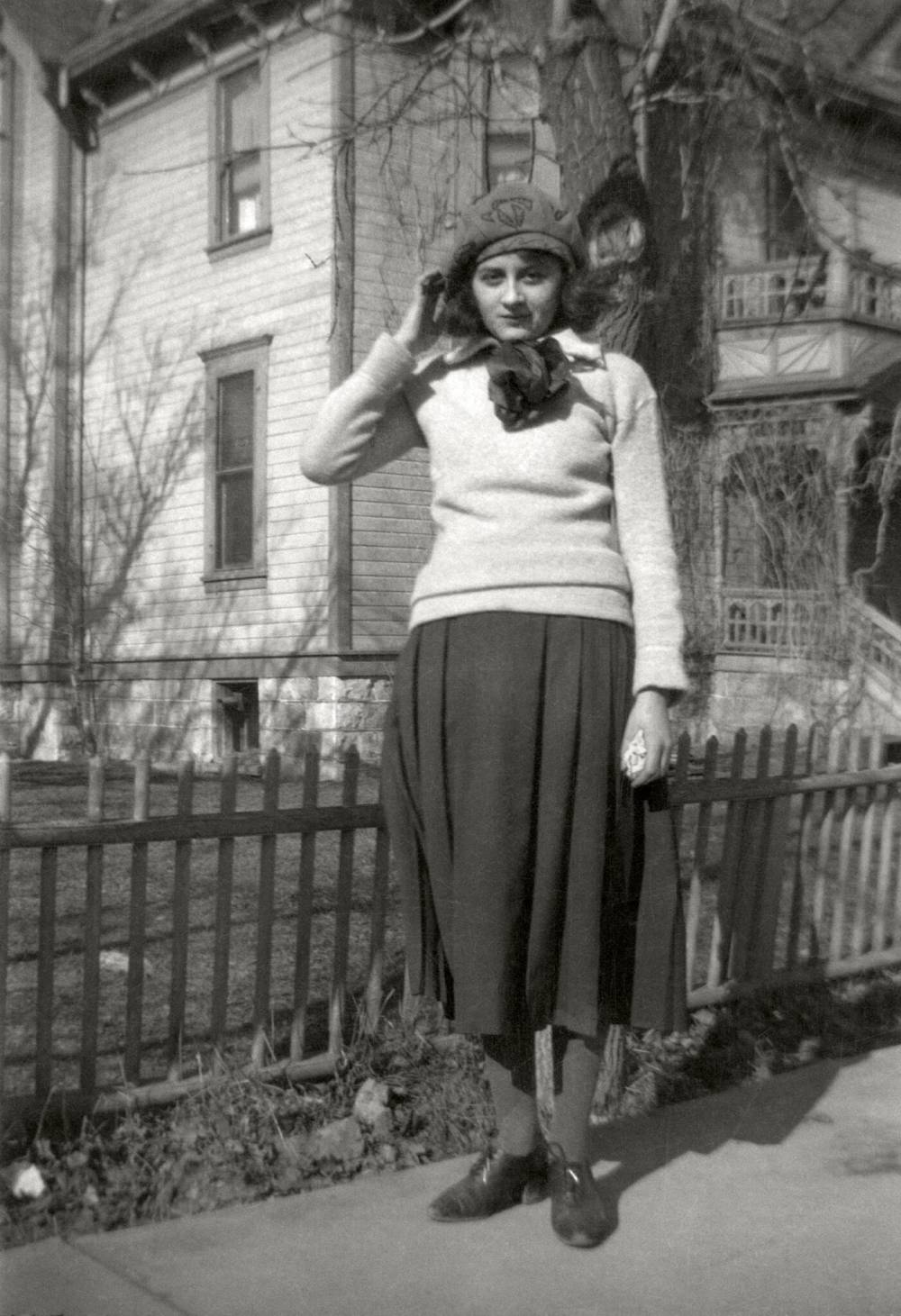
“Nick’s work shows us how wide and complex one person’s life is,” she said. “This exhibit is an exploration of… how far an image can take us into another world.”
With the help of Manitoba Museum staff, Rabinovitch curated the collection into 58 photos now on display in the museum’s Discovery Room. It includes a series of self-portraits, portraits, landscapes, and experimental photography.
“This photo collection was previously unknown, except by a few people, and the pictures were never published. The collection represents a significant historical discovery for the province of Manitoba,” Roland Sawatzky, curator of history at the Manitoba Museum, wrote in an email to the Free Press.
Tragically, Yudell’s life and artistic career was cut short by German forces during the Second World War.
Inspired by a fascination with aviation and a lifelong sense of adventure, Yudell enlisted with the Royal Canadian Air Force in 1940. Then 22-years-old, Yudell stowed his camera and the box of negatives — each one carfully marked with the time, date, place, lighting conditions and names of his subjects — and left Morden.
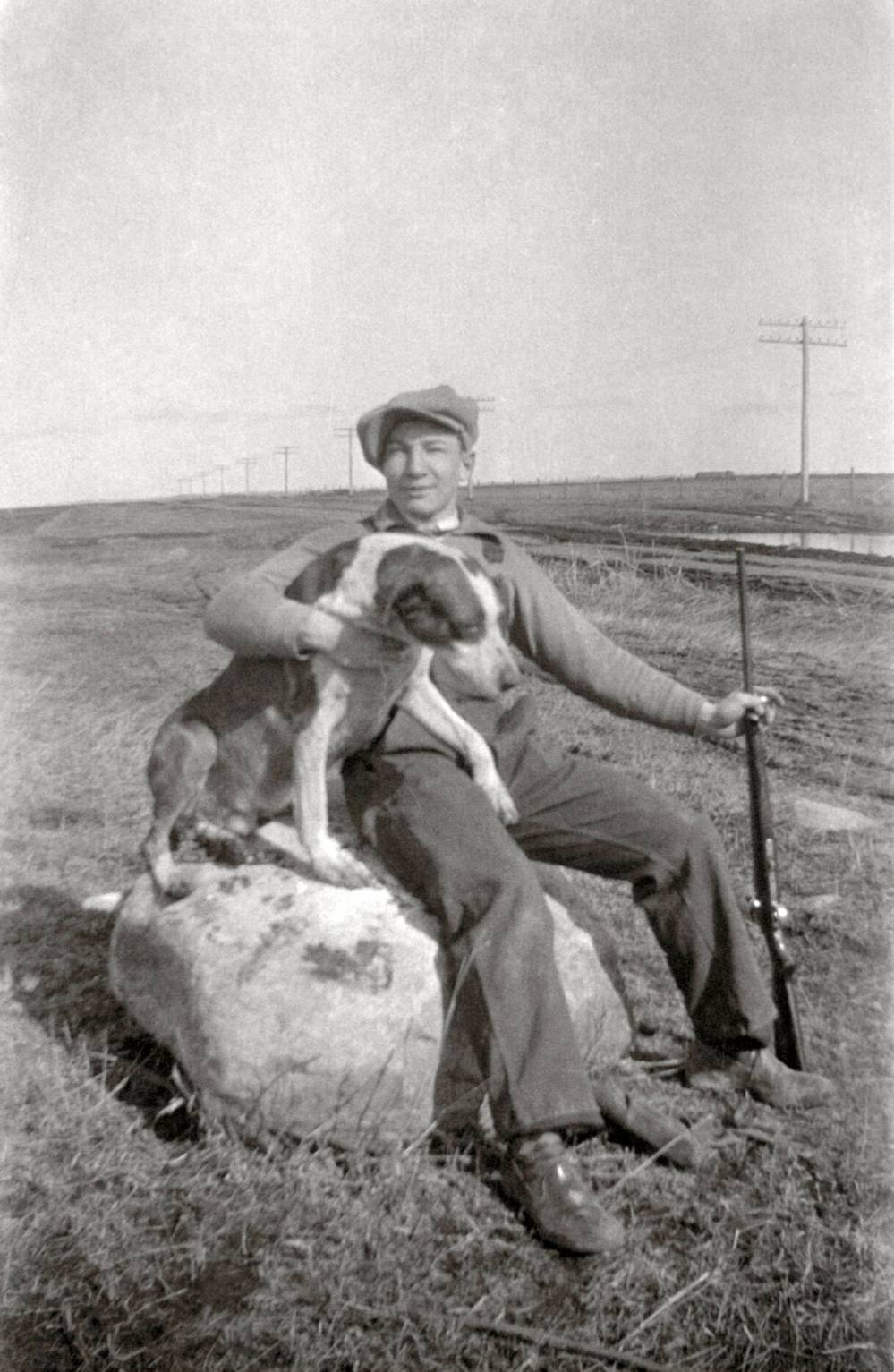
In 1942, Yudell deployed with RCAF Squadron 104 from England to North Africa. On Jan. 6, 1943, a barrage of German flak struck his aircraft and ended his life.
“His time as a photographer was very short, and represented the optimism and fun of a young adult,” Sawatzky said. “Despite the Great Depression on the Prairies and the threat of war in Europe in the 1930s, his pictures are not full of angst or brooding. There are a lot of smiles.”
The exhibit opened officially in February, but on June 12 Rabinovitch hosted a formal talk and tour, offering visitors an opportunity to hear Yudell’s story and browse his photos. The exhibit will remain at the museum until at least Aug. 1.
“Nick is an emblem of all the other boys who died in the war, and the people who had to deny their loss because they simply had to move on and have a life… I also did the exhibition for all of those people,” Rabinovitch said.
tyler.searle@freepress.mb.ca

